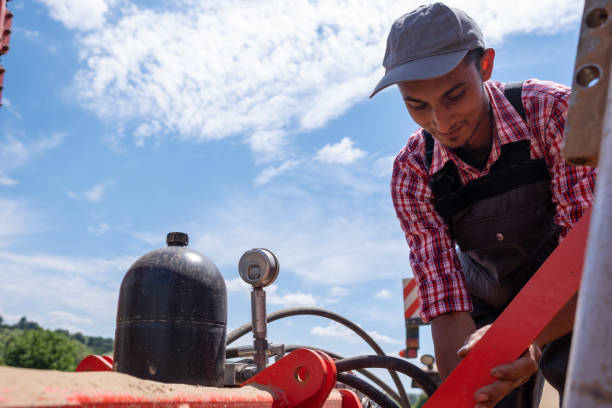Propane in Agriculture: Prospects and Hurdles

Exploring the Agricultural Sector’s Shift to Propane
In the vast and varied world of agriculture, propane has emerged as a versatile and increasingly popular energy source. Its applications range from heating and irrigation to powering farm equipment, presenting many opportunities alongside a few challenges. Let’s explore how the agricultural sector leverages propane, highlighting the benefits and obstacles farmers and producers face.
Opportunities with Propane in Agriculture
Cost Efficiency: Propane’s competitive pricing makes it an attractive option for farmers looking to reduce energy costs. Its efficiency in operations, such as crop drying, heating greenhouses, and running irrigation systems, can lead to significant savings.
Energy Reliability: In rural areas with limited access to electricity or natural gas, propane offers a dependable alternative. Its portability and ease of storage ensure that agricultural operations can continue uninterrupted, regardless of the location.
Environmental Benefits: Propane burns cleaner than other fuels, emitting fewer pollutants and greenhouse gases. This advantage aligns with growing environmental sustainability goals within the agricultural sector, appealing to eco-conscious consumers and regulatory bodies.
Versatility and Adaptability: The wide range of applications for propane in agriculture – from heating livestock facilities to powering farm vehicles – demonstrates its versatility. This adaptability makes it a valuable resource for various farming needs.
Challenges Faced by the Agricultural Sector
Infrastructure and Initial Setup Costs: While propane is cost-effective in the long run, the initial setup for storage and distribution infrastructure can be a hurdle for small-scale farmers or those transitioning from other energy sources.
Market Fluctuations: Like all energy commodities, propane prices are subject to market dynamics, which can lead to price volatility. This unpredictability can complicate budgeting and financial planning for farmers.
Access to Reliable Supply: Ensuring a consistent and reliable propane supply, especially during peak usage seasons like harvest time, poses a challenge. Delays or shortages can have a significant impact on agricultural productivity.
Awareness and Training: There’s a need for increased awareness and training on safely handling and efficiently using propane. Farmers and agricultural workers must be educated on best practices to maximize the benefits while minimizing risks.
Navigating the Future
As the agricultural sector seeks sustainable and efficient energy solutions, propane stands out for its potential to meet these needs. However, realizing this potential requires addressing the challenges above through innovative approaches, such as developing more robust supply chains, offering financial incentives for infrastructure development, and enhancing education on propane use.
The future of propane in agriculture looks promising, with opportunities for growth and improvement. By navigating the challenges and leveraging the inherent benefits of propane, the agricultural sector can enhance its energy efficiency, reduce environmental impact, and improve overall productivity. This journey towards integrating propane more fully into agricultural practices is not without its hurdles, but the prospects it offers make it a worthwhile endeavor.
















